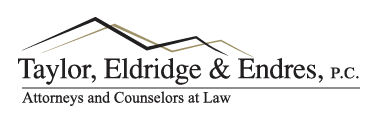We represent over 100 community associations (condominiums, cooperative apartment corporations, and homeowners associations) throughout Nassau and Suffolk Counties from Manhasset and Long Beach to Greenport and Montauk, and everywhere in between. The communities we represent range in size from 10 to 1,500 units. Our vast experience in this field allows us to provide expert advice in a most efficient manner and at a reasonable cost.
We also offer seminars throughout the year; designed to educate our Board member clients regarding current legal issues confronting community associations. An educated Board member is our best customer—and is better equipped to govern the community.
The following services are often rendered to our community association clients:
- Amending governing documents– Changes to the Declaration, By-Laws and/or the Proprietary Lease usually require the support of a supermajority of the owners and may involve substantial filing fees. Designing proposed changes that address the needs of your community and will obtain the support of the community members is no easy task. We have successfully guided Boards down this path on numerous occasions and can help your Board achieve this same goal in an efficient and effective manner.
- Revising and enforcing house rules– While the Board can usually make these rules without having to obtain community support, rules that are not popular or acceptable to the residents may be difficult to enforce. Poorly worded rules can increase confusion and uncertainty. With our experience, we can help the Board compile a set of rules that are clear, comprehensive and enforceable.
- Collection of unpaid assessments, common charges, maintenanceor special assessments– While all owners are required to pay their fair share of the community expenses, there are often units that, in good times and bad, are delinquent in payments. Our office has successfully handled numerous actions for monetary judgments, foreclosures, and co-op evictions when necessary. In more difficult circumstances, we have used our extensive contacts, experience and innovative techniques to recover funds for our community association clients that might not otherwise have been available.
- Sponsor transition issues– Upon the turnover of a condominium, co-op or homeowners association from sponsor to homeowner control, there are financial and property issues that need to be examined and evaluated to make certain that the sponsor has fully and properly performed its responsibilities. We have assisted numerous communities through this mine-filled transition process with the best interests of the community in mind.
- Negotiating and reviewing contracts– Community Boards execute numerous contracts on a regular basis – with a managing agent, landscaper, pool company, contractor, and security company – to name just a few. These contracts are usually initially prepared by the vendor and contain few, if any, of the provisions needed to protect the community. An ounce of prevention is worth a pound of cure. Our review of those contracts before they are signed can help avoid potential and substantial problems down the road.
- Association bank loans and co-op mortgage refinances– Condominium and HOA Boards are increasingly turning to bank loans to help spread out the cost of major capital improvements. These loans are relatively simple to obtain and interest rates remain attractively low. Co-op Boards need to always keep an eye on refinancing the corporation’s underlying mortgage. We know what it takes to bring these loan transactions to closing in a timely manner.
- Resident complaints– Community association Boards are frequently the target of complaints from residents about what the Board has done, hasn’t done, and is thinking of doing. Similarly, Boards often receive complaints from one resident about another. These issues can involve conflicting attitudes regarding rule enforcement, lifestyle preferences, personality and ego. Their resolution is rarely easy, but the Board needs to address them, preferably sooner rather than later. There are few conflicts that we have not seen over the years, and we can help the Board reach a resolution that can restore peace and harmony to your community.
- Fair Housing Act and discrimination complaints– Disgruntled homeowners and residents have become more sophisticated in making claims of discrimination against community association Boards and in filing those complaints with New York state and federal courts and agencies. The best approach is to try to resolve these disputes before a complaint is filed, and we can assist the Board in that process. Having clear policies in place for handling requests for accommodation is an important part of conflict avoidance and we can also help develop such policies. If a complaint is filed, we have experience in representing Boards in the courts and before administrative hearings.
- All phases of litigation– Lawsuits and court appearances can quickly become expensive and can sometimes go on for years without resolution. In addition, the resolution can sometimes be a favorable one, but sometimes not. While litigation should usually be seen as a last resort, there are instances where it cannot be avoided. Whether it is a small claims case; a New York State Supreme Court case or appeal, we can provide the representation your community Board needs.
If you are a Long Island condominium, co-op, or homeowners association Board and have questions regarding a legal matter or are looking to have an experienced community association law firm on your side, contact Taylor, Eldridge & Endres, P.C. by completing our contact form, e-mailing us at info@taylor-eldridge.com or by calling us at (631) 265-5550.

